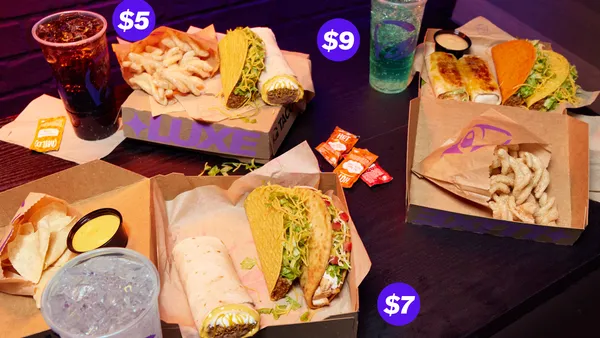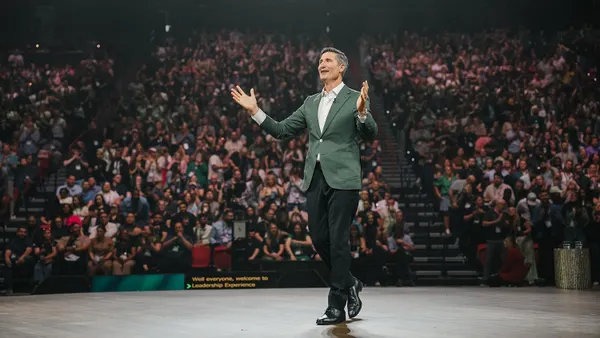Dive Brief:
- Chief marketing officers in the U.S. report facing several challenges over the next six to 12 months, including determining what consumer behavior is temporary versus permanent (43%), declining consumer spending (41%) and aligning with new and changing customer sentiments (35%), per Dentsu's annual CMO survey released Wednesday.
- CMOs are split on their preparedness for the next six to 12 months, with 48% feeling prepared and 52% unprepared. Prepared CMOs are more likely than unprepared CMOs to be already investing in consumer experience (44% to 25%), shifting marketing spend to digital (42% to 22%) and moving toward e-commerce (40% to 26%).
- While more than half (62%) of CMOs have been at least "somewhat" affected by the pandemic, 29% report a minimal disruption and 9% say it has helped their business. The survey of more than 200 U.S. CMOs suggests those who are focused on agile innovation, reimagining consumer experience and focusing on digital capabilities are most likely to be prepared for the next year.
Dive Insight:
CMOs were predicted to be in a "desperate fight for survival" in 2020 long before the coronavirus pandemic upended daily life, marketing and the economy at large, and while a small percentage of them have benefited from the crisis, most will spend the next six to 12 months determining how to move forward and evolve their company's marketing.
Chief among CMO concerns is understanding which consumer behavior changes are temporary versus permanent. Previous studies have shown how the pandemic has accelerated consumer behavior trends, creating new priorities and psychological profiles for consumers as the crisis alters daily life in ways that may persist after the pandemic. For example, it seems likely that diner demand for delivery and drive-thru is signaling a permanent shift in behavior that will persist in a post-pandemic environment. Drive-thru traffic rose 26% in the April, May and June quarter. Diner wariness about eating indoors may also linger for several months, which means restaurants big and small will need to develop competitive to-go and off-premise experiences to catch consumer interest. The report suggests marketers continue to follow these trends and adapt accordingly.
"Understanding consumer behavior is more important than ever yet has never been more difficult. Rather than wait to gain a 'perfect' understanding, prepared CMOs are striking a balance between consumer research and adapting business operations," according to the report.
Dentsu's research finds stark divides between marketing leaders who feel prepared for the times ahead and those who don't. Prepared CMOs are more likely to face minimal disruptions or even positive effects from the pandemic (51% to 25%) and have seen heightened global revenue in the past year (70% to 48%).
Similarly, prepared CMOs were already investing in the consumer experience and shifting to digital and e-commerce channels before the health crisis, trends that have accelerated in the ensuing months. Robust digital channels are now table stakes for restaurants amid dining room restrictions and closures, and chains that had already invested heavily in their e-commerce capabilities — like Chipotle's expansion of its mobile-order drive-thrus — are reaping the benefits now. CMOs also have been focusing on purpose-led marketing at higher rates (42% to 23%). These findings suggest CMOs who feel ready for the challenges of the pandemic and beyond were already addressing areas of marketing that had evolved most in recent years.
"CMOs who feel better prepared to navigate the crisis are more likely to view the role of marketing as creating the best customer experience possible and meeting challenges with disruptive innovation and new products/services. Their less prepared counterparts continued to focus on 'business-as-usual': growth, transformation and price optimization," the report notes.
Among the different realities marketers face, nearly as many (45%) are expecting bigger marketing budgets over the next 12 months compared to those who are expecting cuts (54%). The report suggests CMOs are heeding the general advice not to "go dark" during a recession. In kind, major CPG marketers like Kraft Heinz and Kellogg planned to accelerate marketing substantially in the second half of 2020 to retain new customers brought along by the pandemic.
Emma Liem Beckett contributed to this article.












